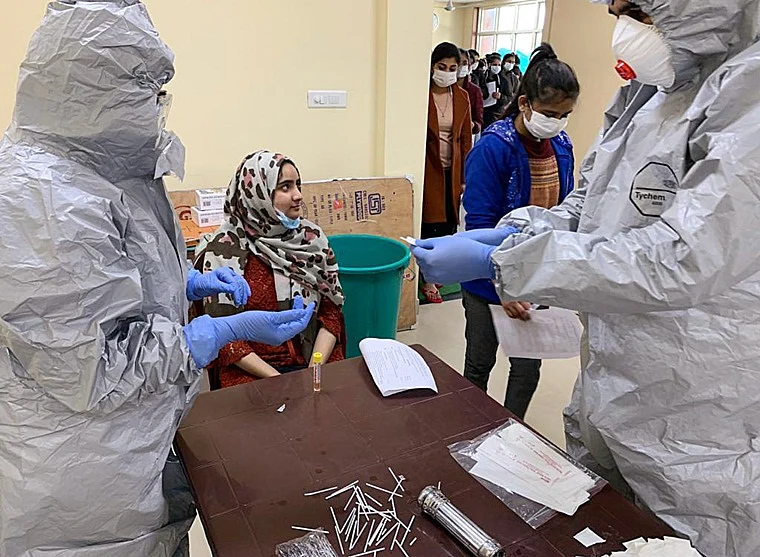China cracked down on the sale of exotic species after an outbreak of a new virus in 2002 was linked to markets selling live animals. The germ turned out to be a coronavirus that caused SARS.
The ban was later lifted, and the animals reappeared. Now another coronavirus is spreading through China, so far killing 1,380 people and sickening more than 64,000 - eight times the number sickened by SARS.
The suspected origin? The same type of market.
With more than 60 million people under lockdown in more than a dozen Chinese cities, the new outbreak is prompting calls to permanently ban the sale of wildlife, which many say is being fueled by a limited group of wealthy people who consider the animals delicacies.
The spreading illness also serves as a grim reminder that how animals are handled anywhere can endanger people everywhere.
"There's a vast number of viruses in the animal world that have not spread to humans, and have the potential to do so," said Robert Webster, an expert on influenza viruses at St. Jude Children's Research Hospital in Memphis, Tennessee.
SARS and the current outbreak of COVID-19 are not the only diseases in people traced back to animals.
The killing and sale of what is known as bushmeat in Africa is thought to be a source for Ebola. Bird flu likely came from chickens at a market in Hong Kong in 1997. Measles is believed to have evolved from a virus that infected cattle.
Scientists have not yet determined exactly how the new coronavirus first infected people. Evidence suggests it originated in bats, which infected another animal that spread it to people at a market in the southeastern city of Wuhan.
Of the 33 samples from the Wuhan market that tested positive for the coronavirus, officials say 31 were from the area where wildlife booths were concentrated. Compared with long domesticated livestock like chickens and pigs, researchers say less is known about the viruses that circulate in wild animals.











